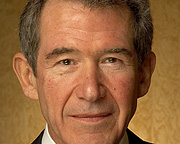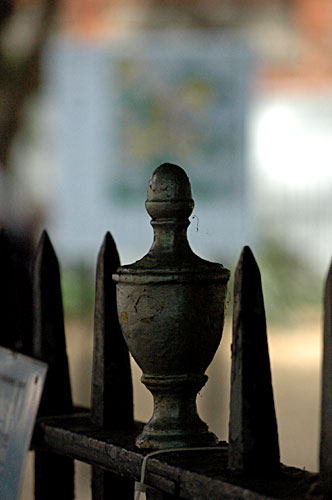I’ve written a little about the Net Neutrality debate , and posted some Blog entries bout it — e.g. here, here and here. It’s a complex and interesting subject, and politicians have clearly had difficulty getting their heads around it. So I was interested to see how Wikipedia would approach the topic.
The entry seemed to me to be a model of its kind — well-informed, mostly well-referenced and balanced. But its ‘neutrality’ has been challenged and has triggered Wikipedia’s discussion process. The discussion page on the issue is fascinating. Here’s the bit about the bias complaint.
This article seems to me to be slanted towards the pro-net neutrality position. The primary problem is about “framing the debate”. I think its pretty clear that the term itself is a frame, an analogy would be if the abortion debate was called “the pro-life vs. anti-life debate”. The article falls for this framing by first discussing the general or abstract concepts of network neutrality. A better approach I feel would be to discuss the origins of the debate, namely that emerging internet applications that cost ISP’s much more in bandwidth charges led them to ban certain devices or find ways to pass that charge on, by charging content providers instead of end users.
The other issue with this debate is that it seems to be an “astroturf” debate, with a inordinate amount of editorials on it.
Please see “Dispute from 71.140.198.6” below Hackajar 16:12, 16 May 2006 (UTC)
I would suggest talking about reframe here instead of forcing a NPOV [Wiki-speak for ‘Neutral Point of View’ — JN] Hackajar 16:17, 16 May 2006 (UTC)
Hackajar’s additions on May 16th are clearly biased and speculative, simply regurgitating Google’s fear-mongering tactics about the COPE Act. This sort of hysteria is part of the debate over NN regulations, but he shouldn’t be offering up such astroturf propaganda as if it were factual.
Statements were added as a matter of common sense, a UPS driver does not pay the city to use road to drive to your house to deliver a package, not influenced by “fear-mongering” generated by any company. Hackajar 13:18, 17 May 2006 (UTC)
This is an encyclopedia. We publish verifiable information from reliable third party sources. Not “common sense.” Please review WP:NOR. Thank you. Nandesuka 13:31, 18 May 2006 (UTC)
I think I added some con-NetNeurality stuff to balance it out. I’m not saying what position I have or whether I have one. John wesley 12:58, 18 May 2006 (UTC)
Once again, the page has been massively edited with a “net neutrality is good, non-regulation is bad” point of view. They’re bringing in all sorts of red herrings from the 90s and distorting the interests in the regulation fight.
Folks, Wikipedia is not supposed to be an extension of Moveon.org, it’s supposed to be place where people can get the straight story without all the spin. Net neutrality is a complex issue, not a good guys vs. bad guys emotional drama. RichardBennett 20:39, 28 June 2006 (UTC)
It’s always irritating to have one’s views changed by other people’s better arguments, but this discussion has caused me to re-evaluate the original entry. I think the point about ‘framing’ is right. Wouldn’t it be nice if all public debate about complex issues were conducted this way? Then we really would have a deliberative democracy. I’m always puzzled by people’s hostility to Wikipedia: to me, it looks like one of the best things to have emerged from the Net.




